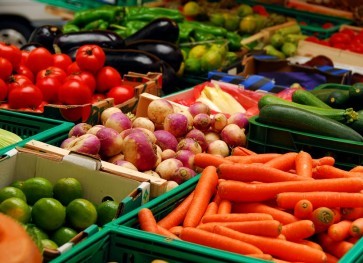BULGARIA LAUNCHES FOOD SAFETY AGENCY
Bulgaria's Agriculture Minister Miroslav Naydenov and the EU Commissioner on Health and Consumer Policy, John Dalli, launched the start of Bulgaria's Food Safety Agency.
"This is the first time, since I became a minister, that I am so excited. We promised the Bulgarian nation and our children that we will work towards allowing them to have safer and quality foods on their tables every day. Now this is possible," Naydenov said.
In his words, the system enables Bulgaria to join other EU member states that have already introduced similar agencies.
"With regards to food safety, healthcare of people and animals, Bulgaria has been accepted to the Schengen zone a long time ago and is a reliable EU border," he said.
EU Commissioner John Dalli stated that this is a very important day not only for Bulgaria, but also for Europe.
"The power of our market is the power of each and every EU member state," Dalli said.
The Director of the Bulgarian National Veterinary Service, Yordan Voynov, was officially appointed head of the Food Safety Agency.
He said that the agency will set standards for quality of foods in kindergartens and schools. He added that there should be some legislative amendments to require the use of foods, approved by the state standards, in children institutions.
"The problem is that at the current public procurements, mayors choose the company that provides the lowest price and low price means low quality," Voynov said.
Naydenov pointed out that the work of the Food Safety Agency will be followed by inspectors from the agriculture ministry.
On Wednesday, the minister announced that Bulgaria is preparing three state standards for three types of bread, which will join the already operating state standards for Bulgarian yogurt, milk and meat products.
The Food Safety Agency combines the National Veterinary Service, National Plant Protection Service, National Grain and Grain Products Service, and a unit in the public health body, which is responsible for food safety.
28 regional centers for food safety will be included in agency, which will control all foods. An exception will be the bottled natural mineral and table water, which will be monitored by regional health inspections of the Health Ministry.
More than 140,000 companies for production, processing and trade with foods will be monitored.
The agency will assess if the quality characteristics of foods follow the national standards, developed by branch organizations and approved by the respective units.
The members of the new agency, together with the regional structures, are expected to be 400 less than the members of the four services that existed before, due to the reduction of the repeating units.






